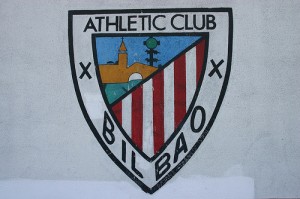Athletic Bilbao’s selection policy is both its strength and an obvious demographic weakness: only players born in the area known as the “historic” Basque Country, encompassing Vizcaya, Guipúzcoa, Álava, Navarre and three French regions –or who were schooled in its youth ranks– are strictly eligible to pull on the red-and-white shirt.

While this policy has been relaxed just slightly in recent years, the only sides in Spain to operate a policy anywhere near as defined by region are fellow Basques Real Sociedad and Barcelona, which currently fields a number of Catalans but also has players brought into the fold at an early age, such as Andrés Iniesta and Leo Messi. But Barça also has a formidable chequebook, allowing it to draft in expensive signings from anywhere in the world, such as Zlatan Ibrahimovic or David Villa. Athletic has to rely solely on its youth system, and those of other clubs in its catchment area.
This is not necessarily a bad thing; a language barrier is divisive on and off the field. Not all Athletic players are required to speak euskera, but apart from its very early days, when British miners and shipyard workers played for the side, there has not been one to whom Spanish is an alien tongue. Legends of the game like Telmo Zarra, Andoni Zubizarreta and Aitor Karanka have shone for Athletic; more recently the club has produced World Cup winners in Fernando Llorente and Javi Martínez.
As clubs that have blazed a trail down the path of financial abandon can attest, prudence is as important as success. Athletic operates on a budget of around €60 million a year: the club’s record transfer expenditure is €7.5 million on Ander Herrera, Zaragoza’s Bilbao-born star who will not join The Lions until July. It is a policy that allows little room for large egos, but a scouting network than can be covered comfortably on a Vespa inevitably leaves Athletic with one of the league’s thinner squads.
Nonetheless, Athletic is one of only three clubs to have contested every Spanish top-flight season –although it came within a point of relegation as recently as 2007– a record shared with Real Madrid and Barça.
It could be deemed a national team playing in a domestic league. The population of the club’s talent pool is somewhere between that of Wales and Scotland; were either to be parachuted into the Premier League today, a top-10 finish would be a remarkable achievement and relegation little surprise.
By contrast, Athletic, which has won eight league titles, is going toe-to-toe with La Liga’s big-spending second-tier clubs –Atlético, Sevilla, Valencia and Villarreal– and this season’s surprise package, Espanyol, to get its feet under Europe’s top table next season. Sunday’s 2-0 win over Sevilla lifted the side to fifth, nine points from the Champions League places.
An Andalusian at the helm
The key to Athletic’s recent success is in no small part the continuity of its manager, Joaquín Caparrós (an Andalusian), who has led the team to 11th, 13th and eighth and a 2009 Copa del Rey final appearance during his tenure. In a league that has a rapid turnover of coaches each season, Caparrós is currently second only to Sporting Gijón’s avuncular Manolo Preciado in length of service.
Athletic’s concern is that its continued domestic rise can be measured on a continental scale; its budget –three-quarters of a Cristiano Ronaldo, or a fifth of Leo Messi’s buy-out clause– makes Bilbao a selling club. At present, it has several items of interest to those with more fiscal clout: Llorente, Martínez, Iker Muniain, Óscar de Marcos, Mikel San José and Markel Susaeta.
It is little coincidence that Athletic’s most recent domestic success came in its 1984-85 double-winning season. Real’s Quinta del Buitre and Barça’s Dream Team accounted for the next decade of Liga hegemony. Jean-Marc Bosman took care of the rest. Real and Barça have shared the last six titles and it is difficult to forecast an alternate winner during this playing generation. The continued service of Athletic’s star players will increasingly depend on European football.
But Athletic has proved it is a club to the manor born. Whether under the spotlight glare of Europe’s grandest arenas or scrapping in La Liga’s dingy basement, The Lions of Bilbao will keep doing so on regional pride alone.
“there has not been one to whom Spanish is an alien tongue” Lizarazu?